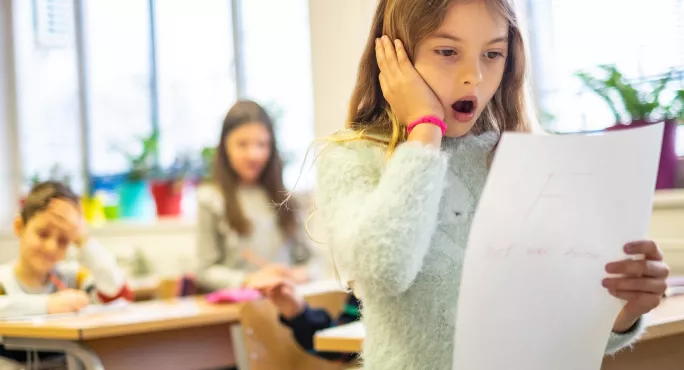It’s report writing season again – that glad time of year when teachers spend hours they don’t have hunched over laptops fervently trying to summon up the words to paint a true and accurate picture of the achievements and personality of each child.
There are obstacles. We are hampered by language, by the fact that most schools have a policy to couch all comments in positive terms, by those awful "statement banks" some schools still persist with that read like your child has been taught by a Speak & Spell machine that’s running low on battery.
There’s also a continuity problem. If last year’s teacher was of a gushing disposition and you are a little more truthful it’s not unusual to get parents wondering what went wrong in the last 12 months.
As a parent, I have no interest in all-positive reports. I don’t want to read meaningless sentences informing me that my child has “made pleasing progress” (pleasing to whom?) or that they are a “steady worker”. I want to know what they are really like in the classroom.
So in the interests of truth and honesty, here’s a few translations designed to look beyond the clichéd phrases and uniform blandness to discover what teachers really mean to say:
'Maintains a keen interest in what is going on around them'
Your child’s head swivels more than a weather vane in a tornado. The longest they have been known to focus on a lesson is 12.3 seconds. Unless you are preparing them for a career as a police informer, please can you help them understand that providing a real-time reporting service on their classmates’ every small indiscretion does not endear them to their teacher or said classmates.
'A quiet, thoughtful child who produces lovely work but should try to speak out more in whole-class discussion'
Ignore this advice: it’s pointless. Some children are introverted, some are shy. If they’re producing good work and listening well but hate speaking in public, then why are we insisting they do? They’re already telling us what they think in writing, why make them do it out loud? Quite aside from the fact that they’ll have had this written on every report they’ve ever had and it’s made no difference, we should cherish our hardworking introverts. After all, imagine what life would be like if they took this advice and turned into the effervescent types?
'X has shown she is capable of working with sustained concentration'
What the report has omitted to mention is that in order for this child to demonstrate her capability she has to be sat in a quiet corner of the room with all distractions removed from her eye-line and a teaching assistant standing guard to ensure the sustained concentration can get underway.
'Y is full of questions and always keen to share their opinion on every topic'
Your child has an external monologue that would put Shakespeare to shame. They are a walking stream of consciousness and only draw breath under the severest of teacher hard stares. Although we encourage questions in the classroom we find that learning is not best served when 47 out of the 62 questions asked most mornings are the same question and relate to the timing of lunch.
Reports with prominent use of: exuberant/ lively/ effervescent/ full of beans
Even parents with no working knowledge of modern school life will know what this means.
Finally, if your child’s report is littered with one or more of these phrases, it’s not necessarily a cause to worry. Often, we just mean "your child sometimes drives me up the wall but they’re fabulous and I love them".
Jo Brighouse is a pseudonym for a primary teacher in the West Midlands




